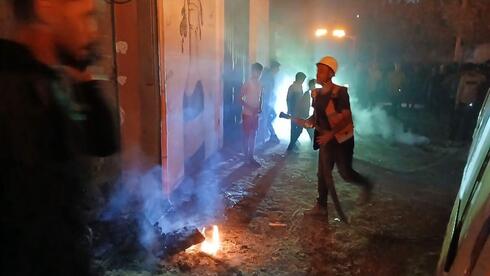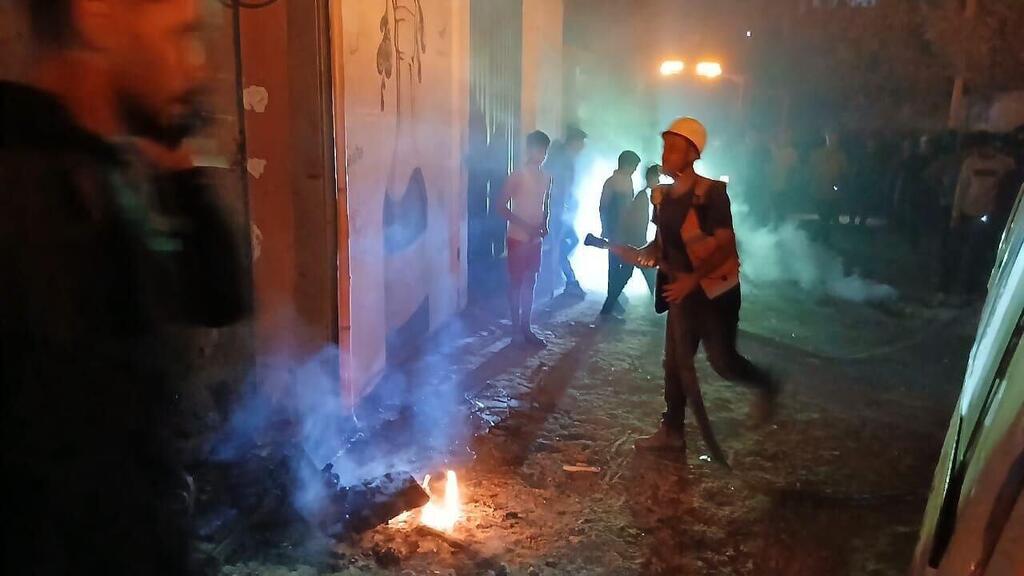
Gaza hit on suspected terrorist came only after US approval, sourc
A strike by the IDF on Saturday in the area of Nuseirat in the central Gaza Strip targeting a member of Palestinian Islamic Jihad (PIJ), who was allegedly planning an attack, was carried out only after coordination with the United States Central Command (CENTCOM), security sources told Ynet.
A senior military source said the operation was not a formal U.S. “request” but constituted coordination with the Americans. The strike was conducted only after U.S. representatives had been notified, up to the level of the commander of CENTCOM.
Aftermath of Israeli airstrike in Nuseirat, central Gaza
According to details obtained by Ynet, intelligence indicated that the target was preparing an imminent terrorist attack on an IDF force in the area, prompting the strike. The IDF had stated the operation was “focused” on the PIJ operative who “planned to carry out an imminent terrorist attack against IDF troops.”
Because of the delicate nature of Israeli operations in Gaza during a period of U.S.-mediated ceasefire implementation, the intelligence was routed through multiple levels: from the Southern Command, via the Operations Branch under Maj. Gen. Itzik Cohen, the Intelligence Directorate under Maj. Gen.Shlomi Binder to Chief of Staff Lt. Gen. Eyal Zamir. From there, the matter was referred to the political echelon and then to the American coordination mechanism before the strike proceeded.
Only after U.S. coordination was secured did the IDF move. The operative was wounded, not killed; it remains unclear whether this was the result of a deliberate decision to limit the use of force or whether the target survived by chance. A senior military official added that U.S. envoy Steve Witkoff was also briefed on the incident, possibly immediately afterward and prior to public disclosure. This marks the first known deployment of the new “threat‑removal” mechanism in this way.
Previously, such a strike might have been authorized at the division or brigade commander level, but now, U.S. oversight extends even to such operations to safeguard the ceasefire and the rules negotiated with Washington.
Prime Minister Benjamin Netanyahu addressed the strike at the Cabinet meeting Sunday, emphasizing: “Our security policy is in our own hands. We are not prepared to tolerate attacks against us; we respond at our discretion to such attacks as we have in Lebanon and, recently, in Gaza.”
He added that “we do not seek approval from anyone. We control our own security and have made it clear to international forces that Israel determines which forces are acceptable on its territory. That is also accepted by the United States, as its senior representatives stated recently. Israel is a sovereign state, and we will defend ourselves on our own and continue to determine our destiny.”
In response, PIJ denied the claim that one of its operatives planned an attack, calling the IDF narrative “false” and accusing Israel of using the allegation “to justify its strike and violate the ceasefire.” The group called on mediators to hold Israel accountable and stop the attacks that lead to retaliation.
First Appeared on
Source link








